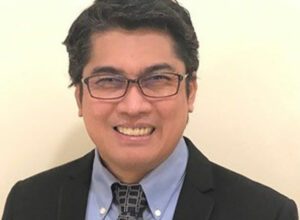Bouncing back through storytelling and myth-making

What do unsuccessful candidates for public office do after their opponents are officially declared winner? There is, we believe, no formal blueprint or template as one emerges at the short end of a zero-sum contest. Perhaps, the approach to this situation will differ based on the level of the position for which one aspired and the aptitude of the person for politics and public service, among other things.
We can look at many examples in the United States of what some of the 52 unsuccessful major party candidates for President since the ratification of the US Constitution in 1788 did after their respective runs for the presidency.
But we need not go far, we can look at our local situation.
CARLOS P. GARCIA AND DIOSDADO MACAPAGALCarlos P. Garcia lost the presidency to his Vice-President Diosdado P. Macapagal in 1961. After leading a quiet life in his home in Quezon City, near ABS-CBN, he was elected president of the 1970 Constitutional Convention (or ConCon). There was a short-lived political battle for the Concon presidency between Garcia and former President Diosdado Macapagal who defeated Garcia for the presidency in 1961. The conflict was reportedly encouraged, and even instigated, by then-president Ferdinand Marcos, Sr. who wanted to give Garcia, his party mate in the Nacionalista Party, a chance to get back at Macapagal, Marcos’ bitter rival for the presidency in 1965.
Thirteen days after he took his oath of office as Constitutional Convention president, the Boholano president died.
Macapagal eventually assumed the Concon presidency. He lived to see a Concon engulfed by bribery scandals and other controversies which expectedly occurred as the Concon was called to legitimize constitutional amendments that would change the country’s form of government from presidential to a parliamentary system. That change would have legitimately allowed Marcos to extend his term by becoming Prime Minister. That was Plan A. Plan B was to have Imelda Marcos succeed him as president.
Soon enough, it became clear that any substantive change would not come from the Concon and if it did, it would be so contentious and lack credibility because of the negative media attention on every issue that would crop up. Plan C therefore came into effect. Marcos declared Martial Law and extended his term indefinitely.
Upon the declaration of Martial Law, the Concon was shut down, together with both the House of Representatives and the Senate. A number of Concon delegates, senators like Ninoy Aquino and Ka Pepe Diokno, and congressmen were arrested. Macapagal found himself deprived of a post-presidency platform. In 1976, he requested asylum at the US Embassy after he denounced Martial Law in a book he authored, Democracy in the Philippines. The US Embassy denied Macapagal’s request when the office was told by Malacañang that there was no plan to arrest the former president.
FERDINAND MARCOS, SR. AND FERNANDO POE, JR.Ferdinand Marcos, Sr., on the other hand, took a radically different path after his extended presidency. With no intentions of retiring gracefully and riding into the sunset, so to speak, he spent the last few years in Hawaii plotting his return to the Philippines and devising his defense to charges that piled up one after the other.
Corazon C. Aquino could not wait for her term as president to end on June 30, 1992.
The president was to serve for one six-year-year term as mandated by the 1987 Constitution she worked so hard to have approved in a democratic and transparent plebiscite. Seventy-six percent of the 21 million votes cast voted to approve the 1987 Constitution on Feb. 2, 1987.
President Aquino devoted her retirement to protecting the democracy she had vowed to restore, by going out into the streets to protest the conduct of the 2004 elections that had Gloria Macapagal-Arroyo admitting she called a provincial election officer, to “protect her lead” over her rival in the 2004 elections, the very popular actor, Fernando Poe, Jr. Arroyo would go on national TV to admit to a lapse of judgment and say, “I am sorry.”
Poe died on Dec. 14, 2014 of heart failure, seven months after losing a presidential election marred by charges of fraud and manipulation. Poe’s widow, Susan Roces, an equally popular actress and mother of Senator Grace Poe, died at the age of 80 on May 20, 2022. Poe Jr. was said to have taken his loss so badly that it affected his health. Before he died however, Poe was able to continue his philanthropy especially among co-workers in the movie industry.
MIRIAM DEFENSOR SANTIAGOPrior to the Macapagal Arroyo-Poe Jr. electoral contest, Fidel V. Ramos won the presidency in 1992 to succeed Corazon Aquino who backed up his candidacy.
Several other candidates contested the presidency in 1992: former Immigration Commissioner and Department of Agrarian Reform Secretary, Miriam Defensor-Santiago; businessman and former ambassador Eduardo Cojuangco, Jr.; former Senator and House Speaker Ramon V. Mitra; former Senate President Jovito R. Salonga; and former first lady Imelda Marcos. Defensor-Santiago came closest to defeating General Ramos and promptly accused the Ramos camp of stealing the election.
Santiago, who was popular with the youth and had carefully cultivated the image of a graft buster, ran again for president in 2016 but was visibly hobbled by lung cancer which claimed her life in September 2016. Rodrigo Duterte won the presidency that year by using unconventional campaign tactics.
In between her runs for the presidency, Santiago served as senator. She served in all three branches of government. She had been a judge during Martial Law.
JOSE DE VENECIA AND MANUEL VILLARSpeaker Jose de Venecia ran against Vice-President Joseph (Erap) Estrada, a popular actor who had been mayor of San Juan and a senator. De Venecia, a businessman and former diplomat, was President Ramos’ go-to-guy in Congress, having formed the “rainbow coalition.” De Venecia had to bring parties into the Lakas-CMD fold as President Ramos won by plurality in a six-person contest.
De Venecia would later return to the private sector and support Arroyo when she assumed the presidency. Arroyo was De Venecia’s vice-presidential running mate in the 1998 elections.
Businessman Manuel Villar was elected to the House of Representatives shortly after the 1986 People Power uprising. He became speaker of the House and soon gained control of the Nacionalista Party. He was speaker when President Estrada was impeached and later on tried by the Senate. The trial was never completed as EDSA II catapulted Gloria Macapagal Arroyo to power.
Villar, for his part, ran for president in the 2010 elections. On Aug. 1, 2009, Corazon Aquino, mother of Senator Benigno Aquino III or Noynoy, passed away. The death of the revered icon of democracy created a groundswell of support for Noynoy, who was expected to support fellow Liberal Mar Roxas in the latter’s expected mano a mano against Villar. But that was not to be. Noynoy was “drafted” by the people and triggered another “people’s campaign,” reminiscent of his mother’s 1986 campaign against Marcos, Sr.
Villar lost in his bid for the presidency. Estrada had been allowed by the court to run again and he promptly declared, “anybody but Villar.” Estrada had obviously not forgotten the 2001 House impeachment during Villar’s speakership. Estrada cut into Villar’s votes.
Villar returned to his businesses in housing and property development. He supported Rodrigo Duterte in 2016 and Marcos, Jr. in the May 9, 2022 elections. In the meantime, his senator-wife, Cynthia, is said to have a clear shot at the Senate Presidency.
LENI ROBREDODeserving a separate column and pending the official proclamation of President, are the post-election plans of Vice-President Leni Robredo. What we know as of now is the proposed creation of a nationwide NGO known as Angat Buhay to combat poverty.
Several things are clear about unsuccessful candidates for President of the Philippines. First, is they cannot stay away from the public eye for too long as they always gravitate towards some form of public service. Second, they do maintain huge residues of influence and those who were able to build up resources through whatever means, retain power that they use, with the aid of clever strategists, storytellers, myth makers, and social media to resuscitate their political fortunes and expand their power base.
Philip Ella Juico’s areas of interest include the protection and promotion of democracy, free markets, sustainable development, social responsibility and sports as a tool for social development. He obtained his doctorate in business at De La Salle University. Dr. Juico served as secretary of Agrarian Reform during the Corazon C. Aquino administration.




